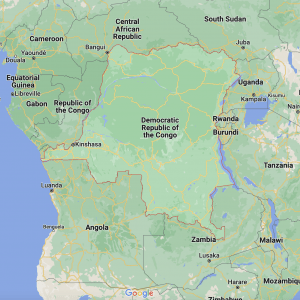Syrian-Palestinians win ‘protection rights’ under UN in Switzerland
ISTANBUL (AA) – A long battle of Palestinians with Syrian backgrounds has concluded, with those coming from the war-torn Middle Eastern nation winning protection rights under the UN Convention in a European country.
Ghada al-Rayan, a Palestinian-Syrian human rights defender, told Anadolu Agency that the Federal Supreme Court of Switzerland decided in favor of her family, granting them residency rights after “acknowledging the statelessness of Palestinian refugees from Syria and their right to protection.”
The plea by al-Rayan had sought an amendment in the description of Palestinian refugees coming from Syria from “de facto stateless persons or citizens of an unknown state to de jure stateless refugees.”
“The decision is a fundamental change in the practical application of the Convention that previously prevented Palestinian refugees from Syria from obtaining the right of protection, which guarantees them the basic rights of residency, work, and movement,” she said.
The Palestinian activist said Switzerland was “one of the first countries in Europe that have agreed to the fact that Palestinians who are born in Syria are also stateless and eligible to all rights under 1954-Convention Relating to the Status of Stateless Persons.”
Who is a stateless person?
The UN’s legal definition of a stateless person is someone who is “not recognized as a national by any state under the operation of its law.”
“This means that a stateless person is someone who does not have the nationality of any country,” says the UN’s description.
The 1954 Convention establishes minimum standards of treatment for stateless people with respect to a number of rights which include, but are not limited to, “the right to education, employment and housing.”
“Importantly, the 1954 Convention also guarantees stateless people a right to identity, travel documents and administrative assistance,” the description adds.
The case
It was in 2014 when al-Rayan along with her parents, brother, and sister reached Switzerland after the war broke out in Syria. Her grandfather left Palestine in 1948 and settled in Syria where her father was born. Al-Rayan’s mother is a Syrian.
“We were treated like any other Syrian in Switzerland who fled the war in their country,” al-Rayan, who works as a researcher at the UK-based Law for Palestine, a legal forum that works on Palestinian issues, told Anadolu Agency by phone from Switzerland.
However, the majority of fleeing Syrians were issued only humanitarian residency permits which restrict their movement.
“My family filed the case that Palestinian-Syrians be also considered stateless people and the court decision case finally came early this week,” she said.
Switzerland, she said, is a signatory to the UN Convention, but “it has not implemented it yet.”
“Ours is the first case where the Swiss top court has acknowledged us as stateless people which allows us to seek protection under the UN Convention under which signatory nations have to issue full residency permits which has no bar on travel, etcetera.”
Under the court’s direction, she added, “Palestinian-Syrians have a strong case in hand to seek protection under the UN Convention on stateless people and file for residency permits in Europe.”
Lawfare ‘tiring, but not impossible’
Acknowledging that the use of the law is a time-consuming process, al-Rayan, who is pursuing a bachelor’s degree in economics, said one must have legal knowledge besides “patience and hope.”
Following the court verdict, she said, cases of Palestinians with Syrian lineage will be taken on a case-by-case basis.
“It may not be that all Palestinians who come from Syria will get this right,” she cautioned.
“When we came to Switzerland, we only got a humanitarian residency permit, and we were treated like any other Syrians who fled their country because of the war,” she said.
Al-Rayan said the Swiss authorities are empowered to send Syrians back home but “due to the verdict we are now protected under the UN Convention on stateless people.”
“The Swiss authorities will have to implement the convention now,” she added.
The human rights defender said that previously, based on Article 2 of the UN Refugee Convention, “Palestinian refugees were excluded from the right to seek protection based on the Convention.”
“Consequently, they were not able to seek asylum in the countries they moved to, since they were supposedly already under the protection of the United Nations Relief and Works Agency for Palestine Refugees (UNRWA).
“This is correct, but only as long as they continue to be under that protection, which ceased to exist for Palestinian refugees coming from Syria who reached Europe, the US, or Canada, as UNRWA does not provide any protection for them there,” she added.













